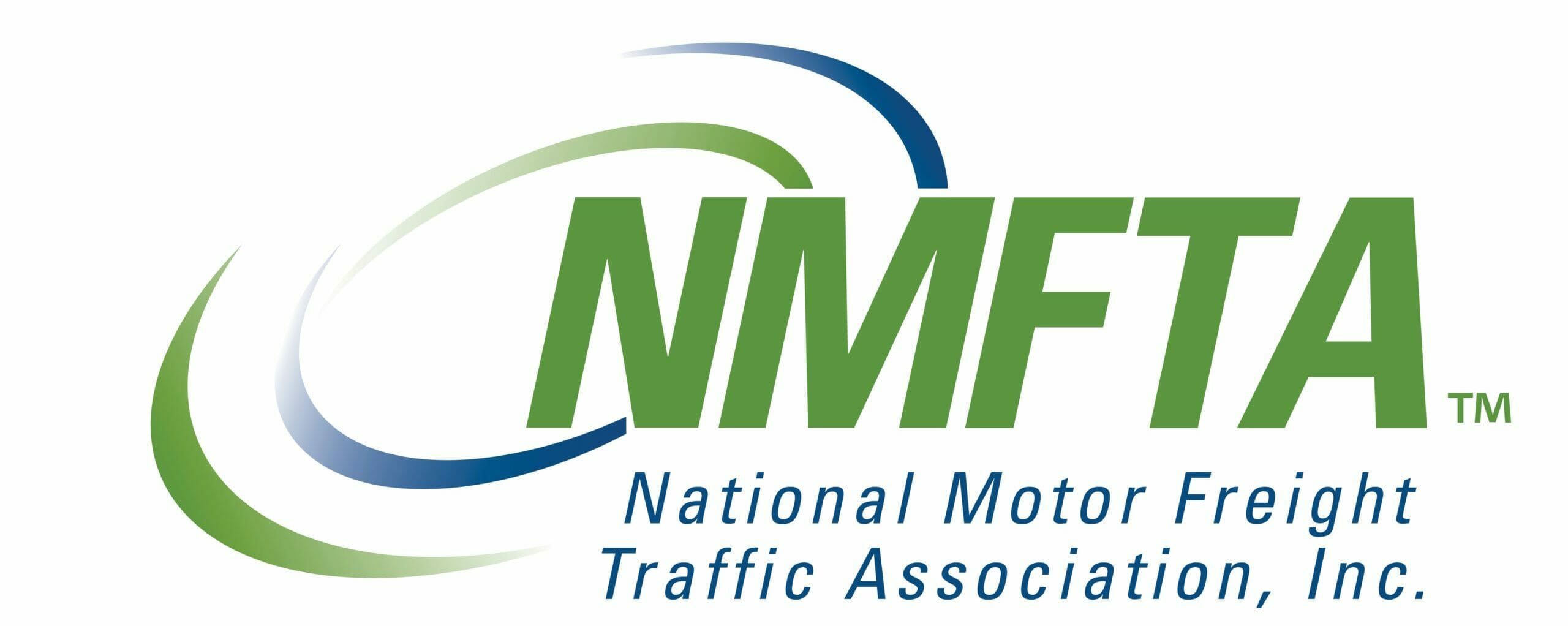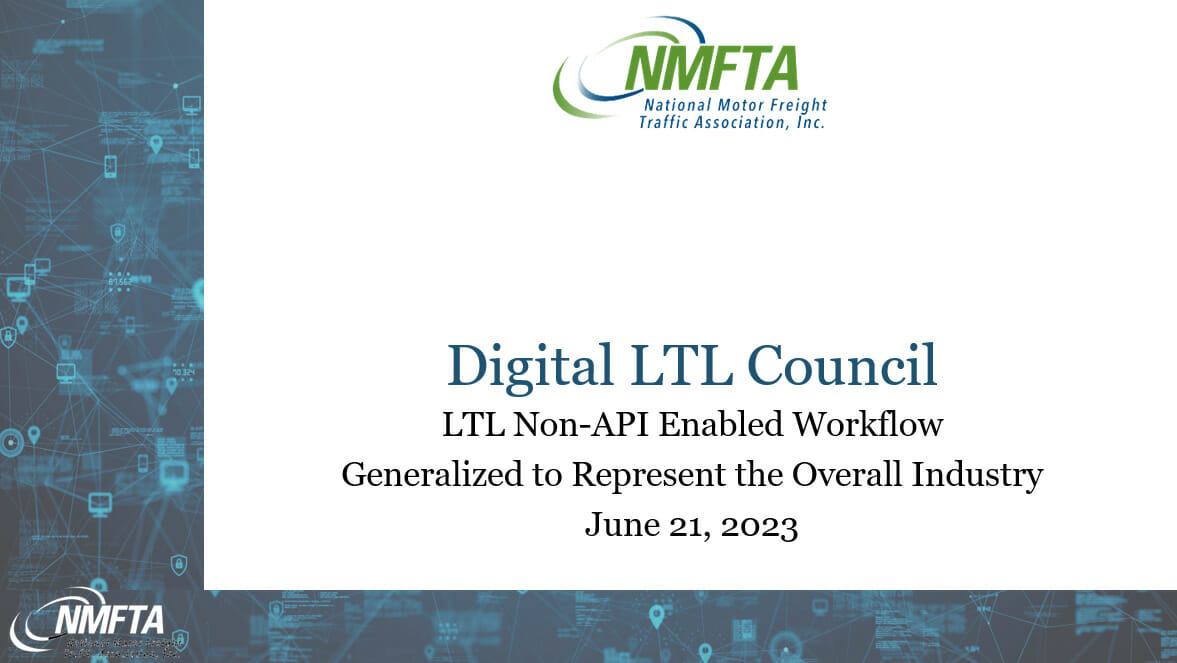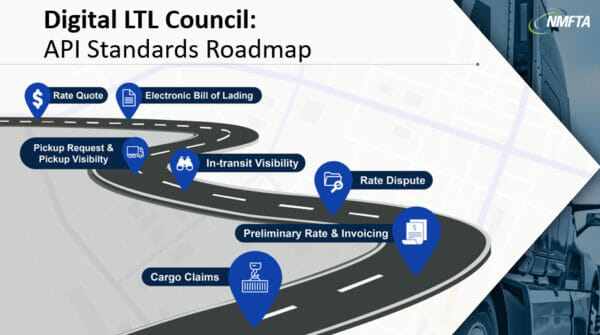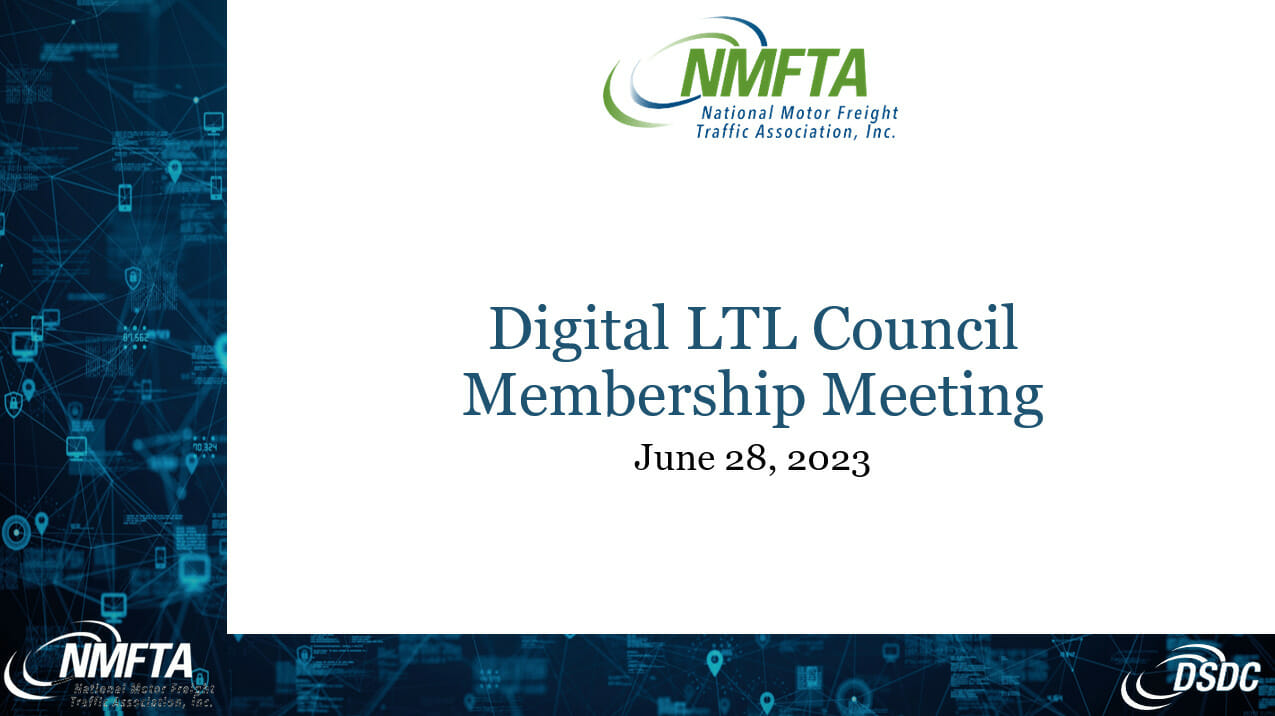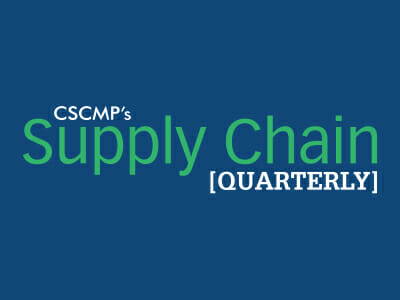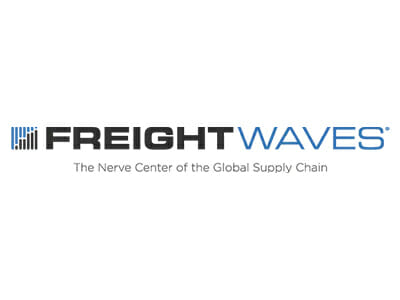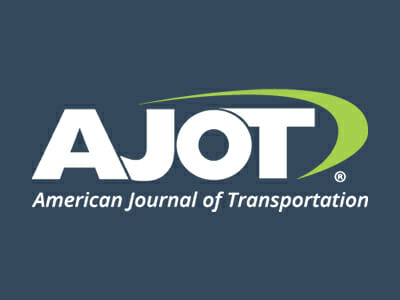
Since November 2020, the Digital LTL Council has been comprised of industry-leading less-than-truckload (LTL) transportation providers, logistics service providers, shippers, technology providers, and organizations.
The Council released its first set of standards to support the electronic bill of lading (eBOL) in late 2021, and work continues with a focus on shipment visibility and freight exception handling.
The purpose of the council is to facilitate collaboration, automation, standardization, and digitalization across all LTL industry participants with the hopes of elevating the industry together.
Join us today!
The eBOL Standard and API
In July 2023, the NMFTA Digital LTL Council announced the first-of-its kind eBOL API standard to improve supply chain efficiency for the LTL industry. This standard reduces costs & errors and improves overall communication and service.
Sign the pledge to institute the standard, and download the API today.
Learn more here.
API FAQs
There are two possible ways, as of current versions, to determine the purpose:
- (RECOMMENDED) Align your purpose with the HTTP verbs used in RESTful API transactions. Use a POST verb to create a BOL request, use a PUT verb to update a BOL request, and use a DELETE verb to cancel/delete a BOL request.
- Use a single POST call and describe intent in the "function" variable. Valid values are CREATE, UPDATE, and DELETE; however this use is discouraged in favor of RESTful API best practices.

We prioritized implementing the eBOL because we saw the opportunity to eliminate unnecessary work and achieve real performance gains. This is an important enhancement in our digital connectivity with LTL carriers.
Let’s Digitize the Industry
Want to get involved in digitizing LTL?
Get in touch with us here or email marketing@nmfta.org.
Presentations
Digital LTL Council Meeting Presentation at SMC³ - January 24, 2024
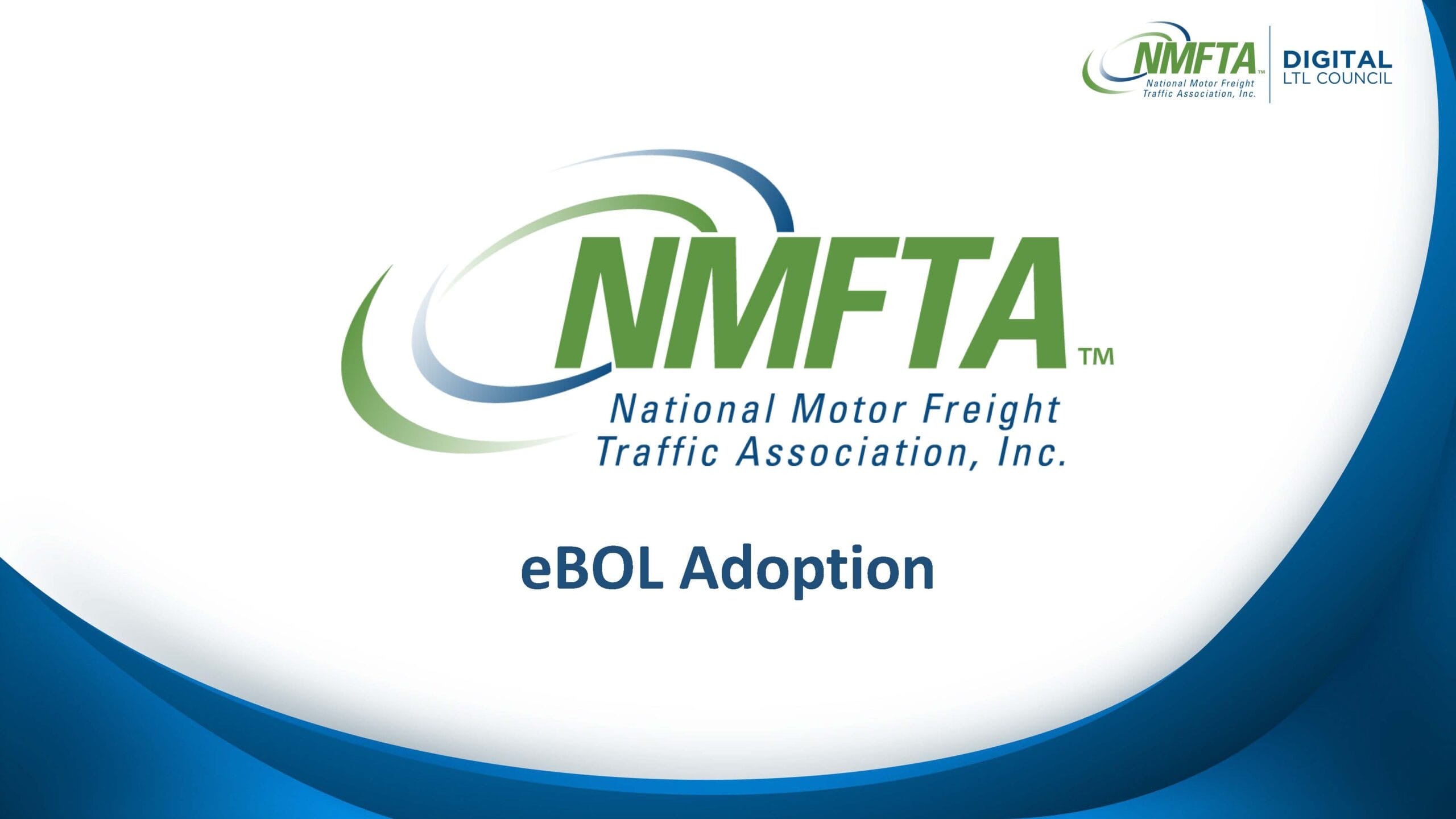
Podcasts
Paul Dugent, the executive director of the Digital LTL Council, was a guest on the SiriusXM Road Dog Trucking's Dave Nemo Show during NMFTA's Meeting in La Jolla, CA. He talked about how standards are being developed in the LTL space and the Digital LTL Council. He explained why we are developing the standards from a driver's point of view. He shared what we have accomplished so far – pledges, etc., and explained how we’re working with those in the truckload space as eBOL isn’t just going to be for LTL. He added how digitalization helps drivers and we’re setting standards to those on the road so drivers can focus on the job versus managing paper.
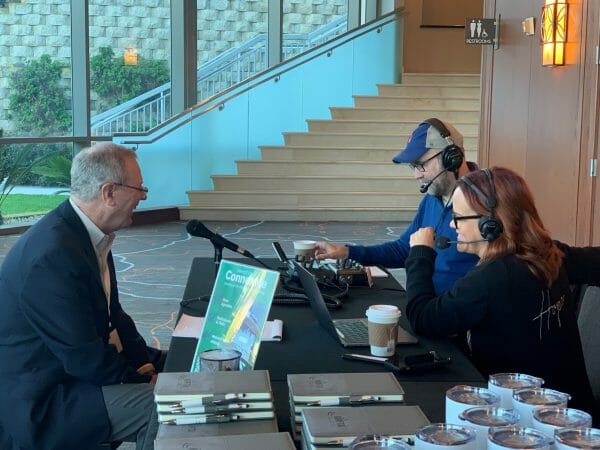
In the News
With businesses set to adopt the common standard in July, effort will advance digitization of the less than truckload sector, group says.
The council called on members last year to pledge adoption of the technology by July 20, 2023. The goal is to make the LTL industry “more efficient and produce a more fluid supply chain through digitization.”
The Digital LTL Council, a division of the National Motor Freight Traffic Association (NMFTA), issued a call to the industry in 2022 to embrace a new common standard for electronic bill of lading (eBOL) application programming interface (API).
Meet our board members
- Paul Dugent, NMFTA, Executive Director and Secretary
- Geoff Muessig, PITT OHIO, Chairman
- Brian Thompson, SMC³, Vice Chairman
- Greg West, C.H. Robinson, Treasurer
- Webb Estes, Estes Express Lines
- Tim Vander Pol, Peninsula Truck Lines
- Reed Tepper, Parker Hannifin
- Nick Douglas, project44
- Dolly Wagner-Wilkins, Worldwide Express
- Chris Scheid, MyCarrier
- Angelo Ventrone, Uline
Case Studies
Case Study #1:
Full Life-cycle Automation
To capitalize on the growing demand for business and provide a better customer experience, RR Donnelley sought to optimize their LTL transportation spend while digitalizing the entire lifecycle of activities.
Members of the Digital LTL Council partnered to reduce RR Donnelley's internal LTL freight spend by $250,000 per year and reduce 700-900 daily manual calls required by their team.
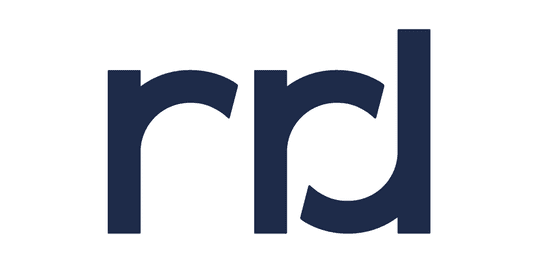
"This technology is changing the way we ship freight by allowing us to ship faster, more efficiently, and allowing us to communicate data to our customers and clients in a [more] efficient manner."
– Sam Hong, Direction of Integration, DLS Worldwide
This case study is brought you by:

Averitt
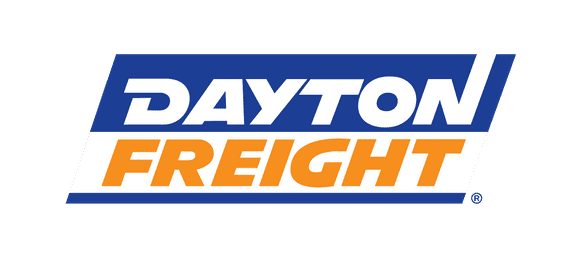
Dayton
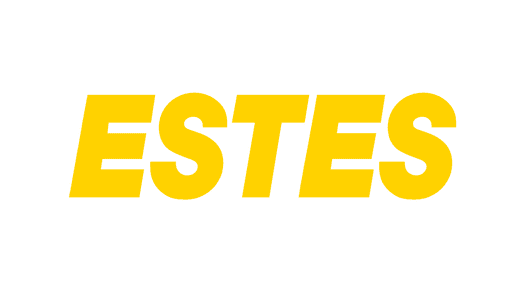
Estes
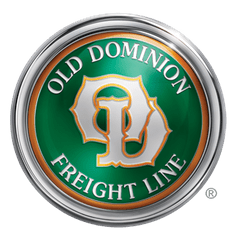
OD

Pitt
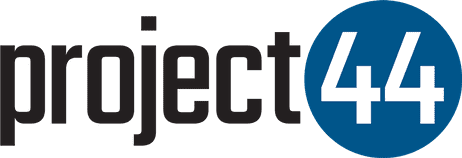
Project
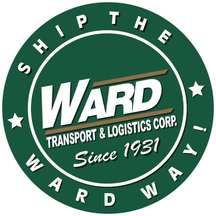
Ward
Case Study #2:
Automated Dispatch and In-transit Visibility
Improve operational processes, efficiency, and reduce unnecessary internal costs, Uline set out to improve internal workflows and end customer experience by digitalizing the LTL Dispatch process, as well as receive real-time in-transit visibility updates
Members of the Digital LTL Council partnered to reduce the time spent manually tracking shipments, eliminate missed pickups, shorten carrier dwell times, and enable proactive risk management to better meet their customers’ JIT delivery requirements.
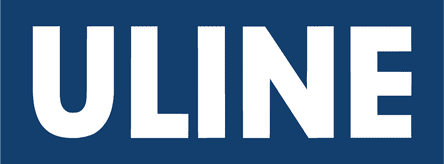
"The [LTL Digital] Council has already made a significant impact on our business, and we look forward to continuing to partner with the teams to unearth new opportunities as we further modernize and digitize our operations."
– Angelo Ventrone, Vice President of Logistics, Uline
This case study is brought you by:

Averitt

Estes

OD

Pitt

Project
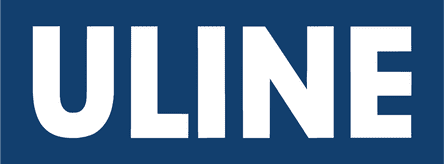
Uline
